- Applied Chemistry
- Computer Science
- Mechanical Engineering
- Electronics Engineering
- Materials Science
- Engineering Education
- Applied Chemistry
- Electronics Engineering
- Computer Science
- Materials Science
- Mechanical Engineering
- Engineering Education


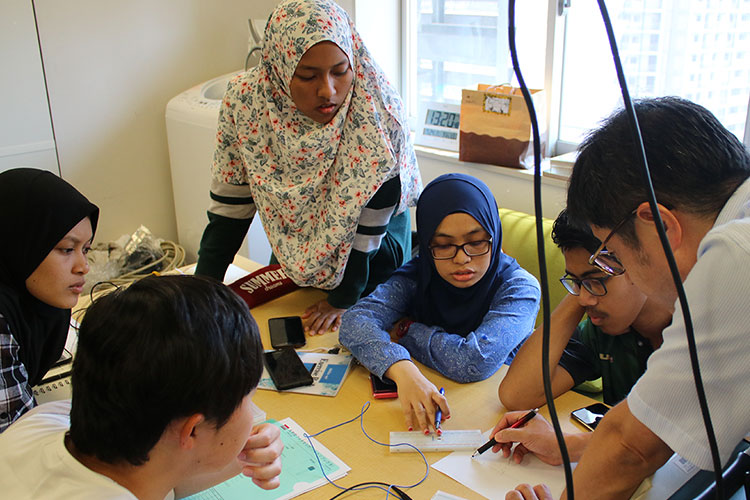


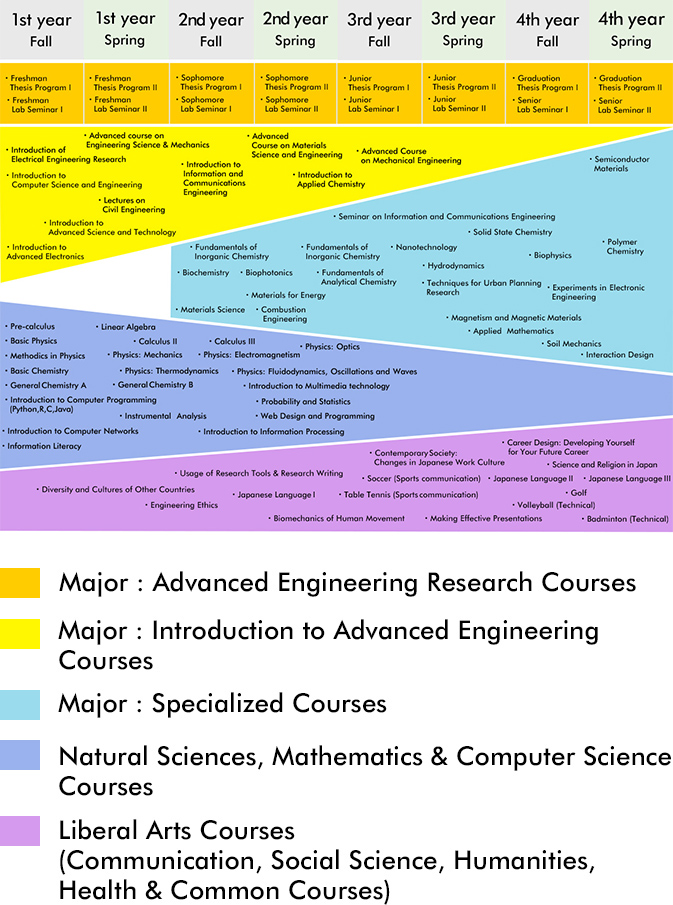
*Please note that some Specialized Subjects are shared with other departments in the College of Engineering whose faculty are outside IGP’s supervisors’ laboratories.
Throughout first through fourth years, students study in their Major each semester and pursue cutting-edge research while receiving supervision and mentoring from their supervisor, advisers, and post-graduate students in the same laboratory in Advanced Engineering Research Subjects.
From first and second year, students’ interest in various fields of engineering is stimulated by Introduction to Advanced Engineering Subjects, showcasing advanced research by College of engineering faculty.
Also during the first two years, students build their solid foundation of scientific knowledge, methodology, and practical skills by studying Natural Science, Mathematics, and Computer Science subjects needed to prepare for advanced research.
More advanced Specialized Subjects are undertaken, mainly from second to third year, to acquire deeper knowledge and help students choose their graduation research project.
In Liberal Arts subjects, focused on Communication, Social Science & Humanities, students learn to communicate professionally, confirm the wider social significance of their own research, and gain motivation to tackle various social problems. Physical Education, Health, and Japanese language subjects are also available.
Throughout first through fourth year, students study in their Major each semester and pursue cutting-edge research while receiving supervision and mentoring from their supervisor, advisers, and post-graduate students in the same laboratory in Advanced Engineering Research subjects.
From first and second year, students’ interest in various fields of engineering is stimulated by Introduction to Advanced Engineering Subjects, showcasing advanced research by College of engineering faculty.
Also during the first two years, students build their solid foundation of scientific knowledge, methodology, and practical skills by studying Natural Science, Mathematics, and Computer Science subjects needed to prepare for advanced research.
More advanced Specialized Subjects are undertaken, mainly from second to third year, to acquire deeper knowledge and help students choose their graduation research project.
In Liberal Arts subjects, focused on Communication, Social Science & Humanities, students learn to communicate professionally, confirm the wider social significance of their own research, and gain motivation to tackle various social problems. Physical Education, Health, and Japanese language subjects are also available.


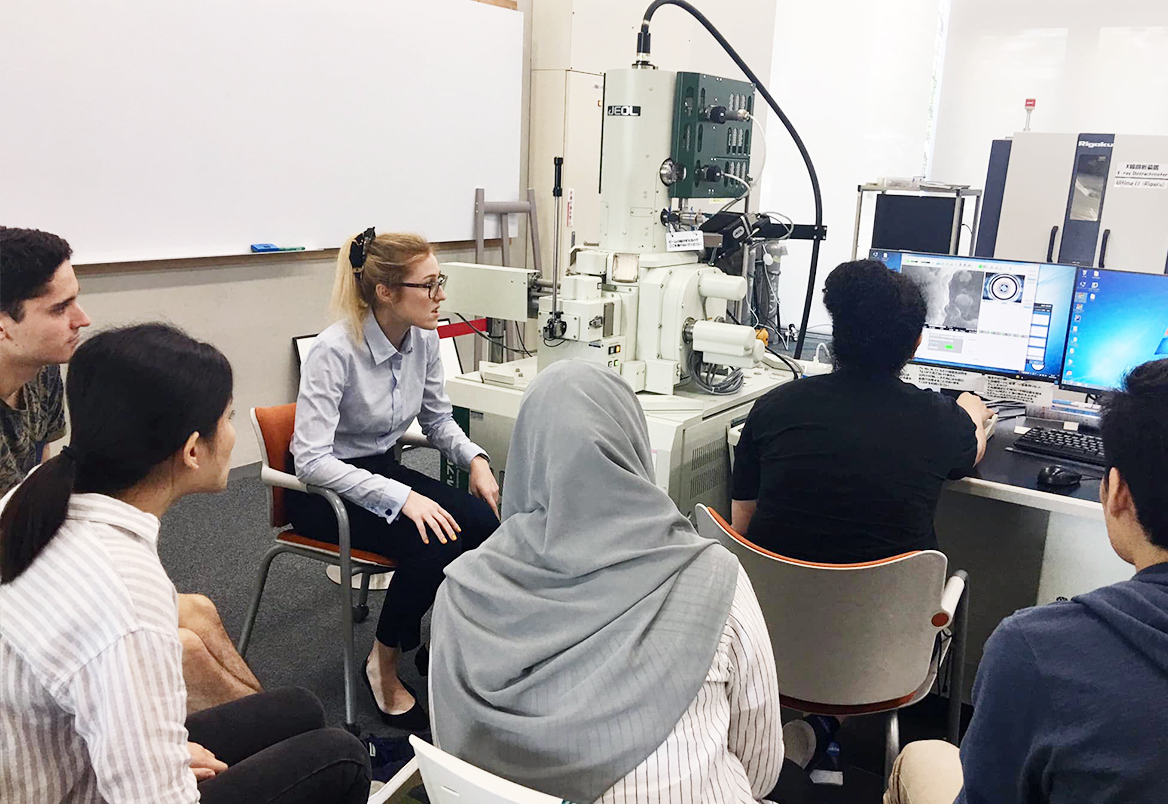


For students to conduct active Research-Based Learning in their major, this subject is required each year.
This subject consists of a practical research project and a seminar. For their practical research project, from the first year, the student is assigned to their supervisor’s research laboratory and pursues cutting-edge research under the guidance of that supervisor and advisers.
For the seminar, students present and discuss their research in front of advisers from various specialized research fields. Having their research assessed by not just a single specialist but by specialists from other fields as well, fosters a multidisciplinary perspective.
Learning and practicing “What is research?” year by year:
For students to conduct active Research-Based Learning in their major, this subject is required each year.
This subject consists of a practical research project and a seminar. For their practical research project, from the first year, the student is assigned to their supervisor’s research laboratory and pursues cutting-edge research under the guidance of that supervisor and advisers.
For the seminar, students present and discuss their research in front of advisers from various specialized research fields. Having their research assessed by not just a single specialist but by specialists from other fields as well, fosters a multidisciplinary perspective.
Learning and practicing “What is research?” year by year:

Students are given a research topic and learn specific problem-solving methods under the guidance of higher level College students and postgraduate students.

Students acquire advanced knowledge in their fields and learn to solve problems with a variety of approaches.

In their third year, students reconfirm their supervisor and the laboratory in which they will conduct their Graduation Thesis Program. Having already grasped an overview of their major research field, the student then decides on a research team and actively pursues that research.

Students form a team, conduct their own research, and confirm their results. In addition, they will communicate those results to society in academic conferences. This becomes a vehicle for learning and practicing leadership and professionalism.
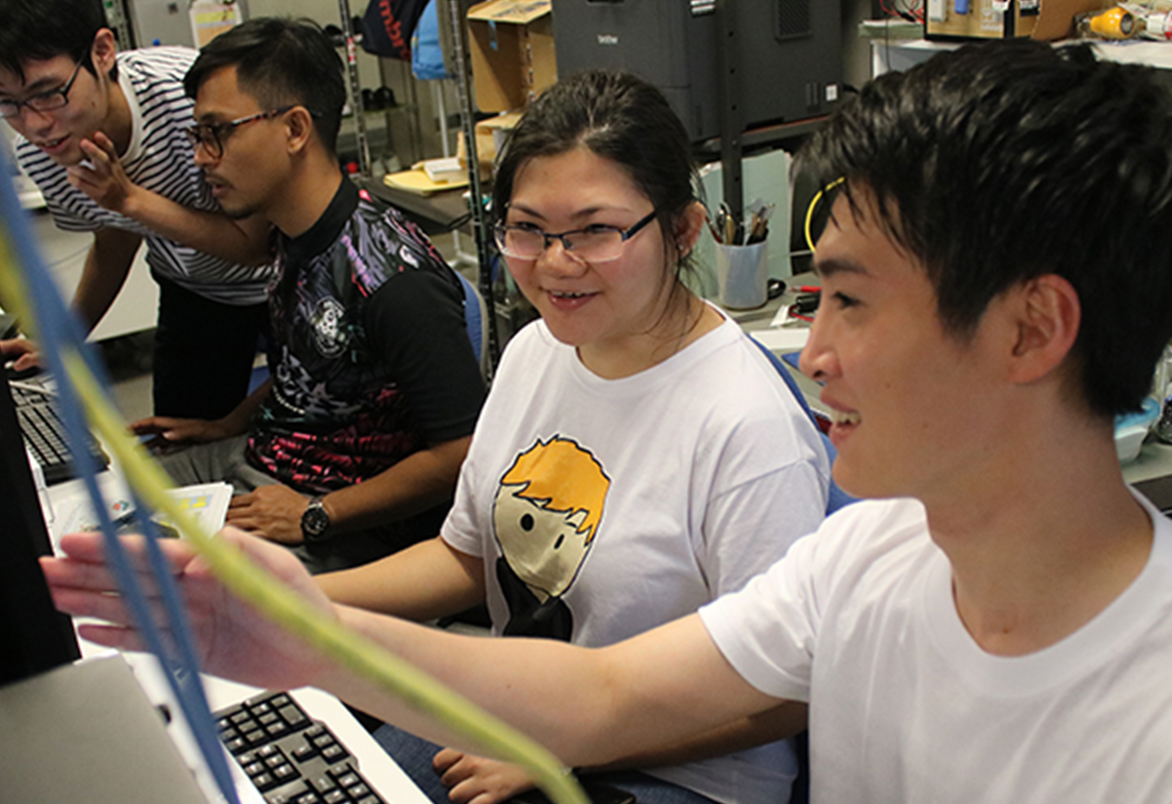


Students are introduced to advanced research in a wide range of engineering fields from the first two years in order to develop a global perspective on current innovative approaches in various fields.
These subjects introduce research by faculty members from various disciplines to enable students to learn the scientific value and social significance of a variety of approaches.
Students synthesize what they have learned by writing reports on topics assigned for each class. These subjects are scheduled in the first two years to awaken student interest in various disciplines of engineering, and to help them choose their future field of research.
Students are introduced to advanced research in a wide range of engineering fields from the first two years in order to develop a global perspective on current innovative approaches in various fields.
These subjects introduce research by faculty members from various disciplines to enable students to learn the scientific value and social significance of a variety of approaches.
Students synthesize what they have learned by writing reports on topics assigned for each class. These subjects are scheduled in the first two years to awaken student interest in various disciplines of engineering, and to help them choose their future field of research.
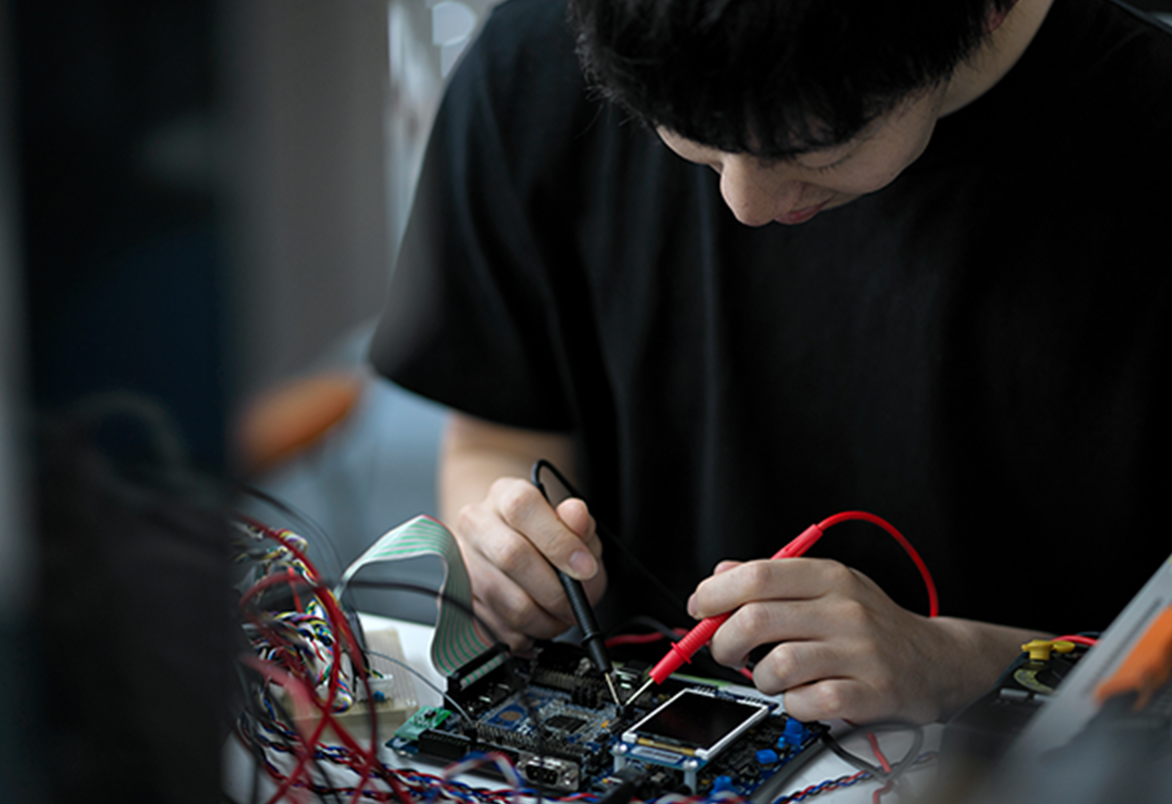


Mainly from second and third year, students study higher-level Specialized Subjects that will serve as reference points for research pursued in their major Advanced Engineering Research subjects.
Each subjects contains content that builds on and deepens students’ basic knowledge of science and engineering, and strengthens their understanding of specialized fields, and particular research skills.
Mainly from second and third year, students study higher-level Specialized Subjects that will serve as reference points for research pursued in their major Advanced Engineering Research subjects.
Each subjects contains content that builds on and deepens students’ basic knowledge of science and engineering, and strengthens their understanding of specialized fields, and particular research skills.
*Please note that some Specialized Subjects are shared with other departments in the College of Engineering whose faculty are outside IGP’s supervisors’ laboratories.


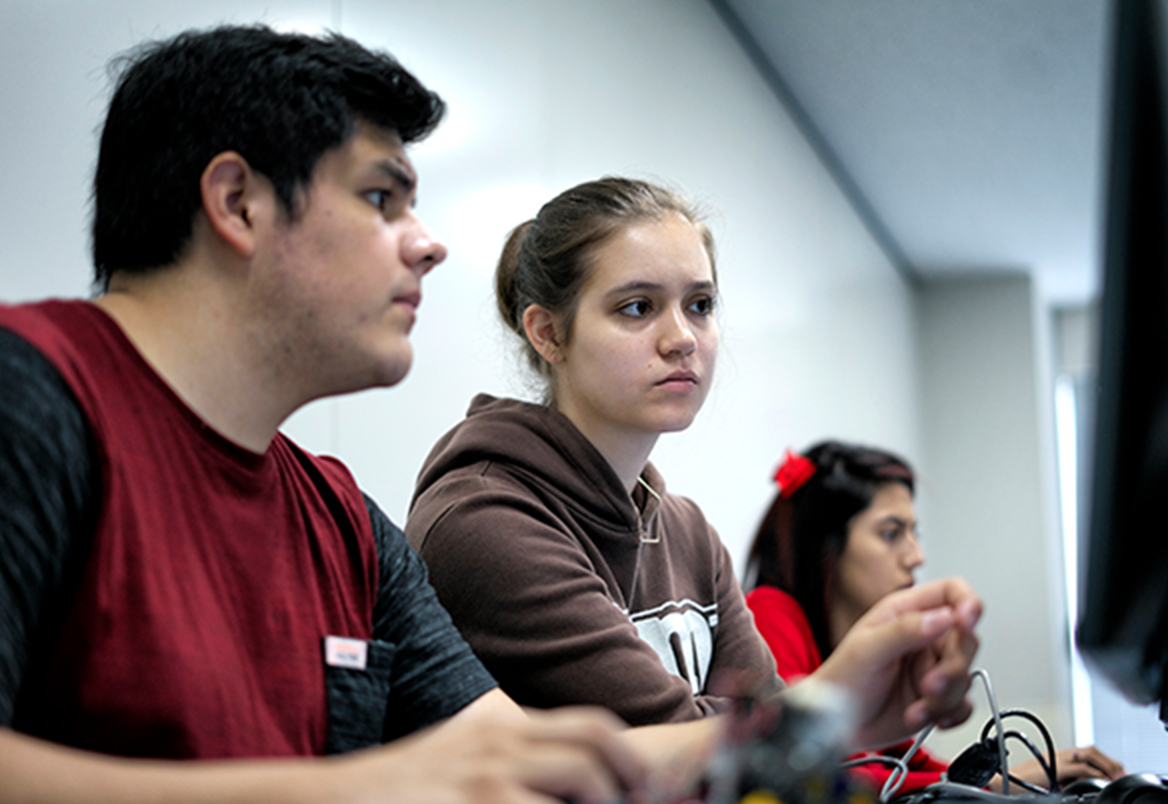
These foundational Subjects have been scheduled mainly in their first two years.
Each course includes essential theory and practice to give students a solid foundation of knowledge and analytical skills in Mathematics, Physics, Chemistry, and Computer Science required to build a deeper understanding in Advanced Engineering Research Subjects and Specialized Subjects within their Major.


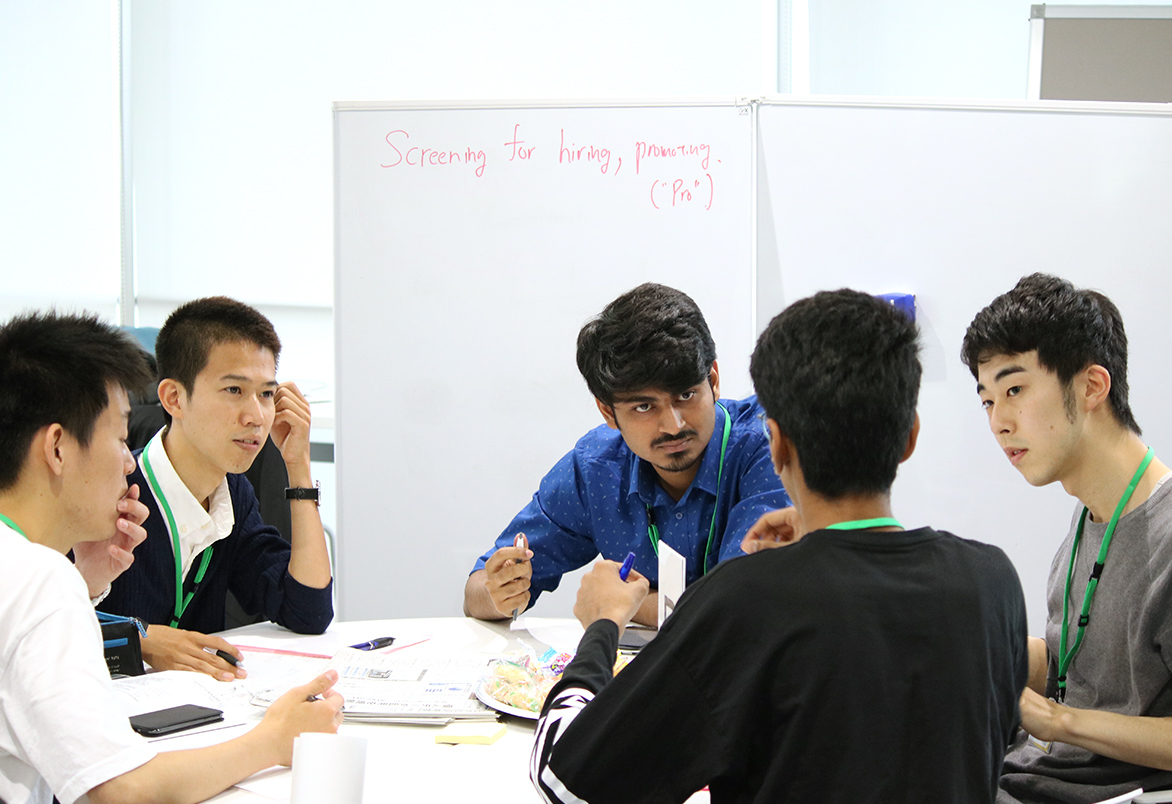
Communication Subjects give students strategies
and practice in writing and presenting their research
within the university and in international forums.
Communication Subjects give students strategies and practice in writing and presenting their research within the university and in international forums.
Social Science subjects students’ understanding
of the social context in which engineering is utilized.
For example, “Diversity and Cultures of Other
Countries,“ is designed to help engineers work
collaboratively in an international team after graduation.
The required subject “Engineering Ethics”
raises students ability to make decisions and to
practice ethically as engineers in society.
Humanities Subjects develop students’ broader perspective
on ways of thinking outside of their specialty, as well as
appreciation for the arts as creative expressions of human life.
Social Science subjects students’ understanding of the social context in which engineering is utilized.
For example, “Diversity and Cultures of Other Countries,“ is designed to help engineers work collaboratively in an international team after graduation / The required subject “Engineering Ethics” raises students ability to make decisions and to practice ethically as engineers in society.
Humanities Subjects develop students’ broader perspective on ways of thinking outside of their specialty, as well as appreciation for the arts as creative expressions of human life.
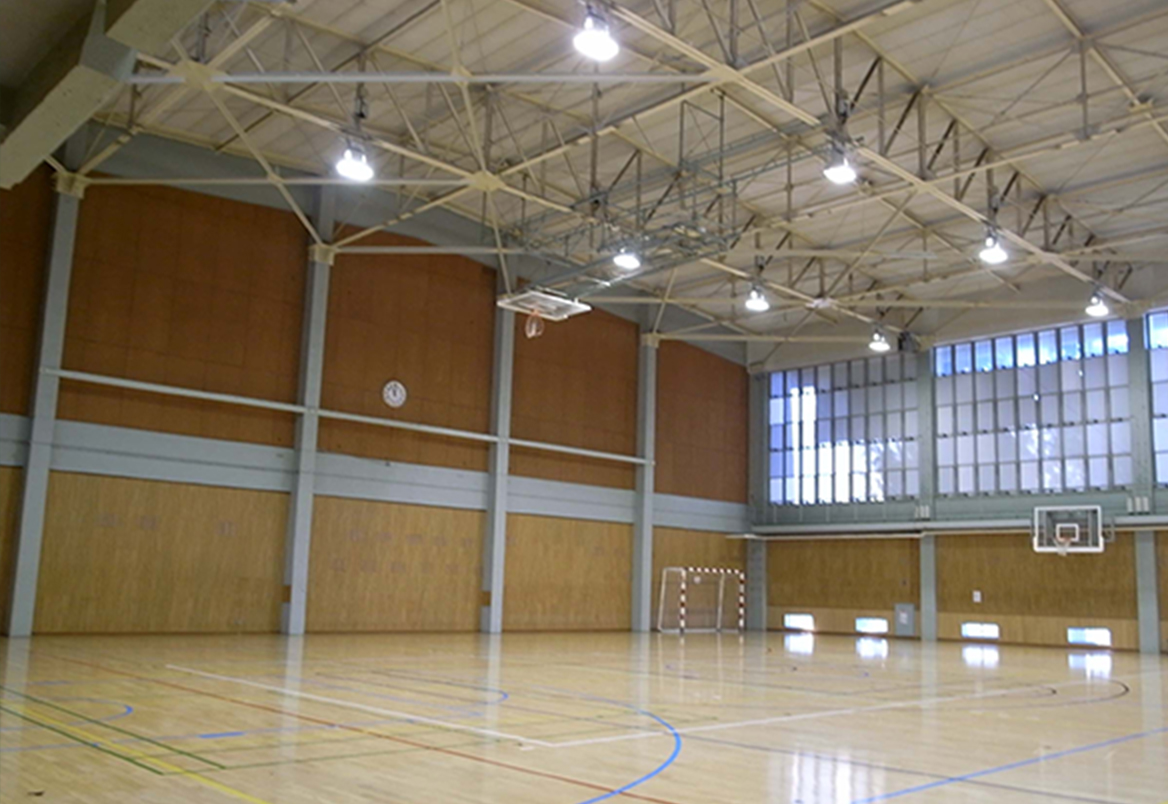


These subjects maintain and improve
students’ physical stamina and health, and
increase socializing skills.
These include not only actual sports practice,
but also theoretical subjects such as
“Biomechanics of Human Movement.”
These subjects maintain and improve students’ physical stamina and health, and increase socializing skills. These include not only actual sports practice, but also theoretical subjects such as “Biomechanics of Human Movement.”
The subjects Japanese I, Japanese II and Japanese
III assist Japanese language acquisition for
non-native speakers of Japanese.
As the IGP conducts all classes in English, Japanese
language skills are not necessarily required for
study purposes, but these classes aim to support
everyday life in Japan for international students
and assist them in playing an active role in
Japanese companies and society after graduation.
The subjects Japanese I, Japanese II and Japanese III assist Japanese language acquisition for non-native speakers of Japanese.
As the IGP conducts all classes in English, Japanese language skills are not necessarily required for study purposes, but these classes aim to support everyday life in Japan for international students and assist them in playing an active role in Japanese companies and society after graduation.
Japanese Levels I – IV
Japanese Levels I – IV



A personalized curriculum map will be created with advice from the supervisor and graduate students from the same research laboratory, and a four-year study design will be produced after determining the subjects to be studied and the skills to be acquired thorough practice.
A Curriculum Accommodation Plan (CAP) will be strictly followed to enable students to obtain the required credits.
Consulting with a supervisor and designing a four-year study plan ensures that each student has the essential foundation required to work as an engineer or research scientist, that the graduation requirements are met, and that the study time required to obtain credits is feasible.
A personalized curriculum map will be created with advice from the supervisor and graduate students from the same research laboratory, and a four-year study design will be produced after determining the subjects to be studied and the skills to be acquired thorough practice.
A Curriculum Accommodation Plan (CAP) will be strictly followed to enable students to obtain the required credits.
Consulting with a supervisor and designing a four-year study plan ensures that each student has the essential foundation required to work as an engineer or research scientist, that the graduation requirements are met, and that the study time required to obtain credits is feasible.

The following tables introduce graduation requirements for existing IGP students.

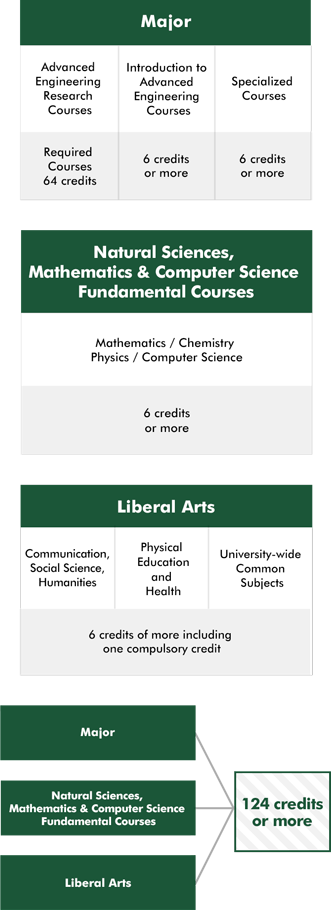
Graduation is conditional upon acquisition of a total of 124 credits (or more).
The Graduation Thesis Program subjects will undergo multi-faceted assessment, not only by the supervisor but also several advisers to assure quality. It is also recommended that the thesis be submitted to and presented at an international conference.
Graduation is conditional upon acquisition of a total of 124 credits (or more).
The Graduation Thesis Program subjects will undergo multi-faceted assessment, not only by the supervisor but also several advisers to assure quality. It is also recommended that the thesis be submitted to and presented at an international conference.